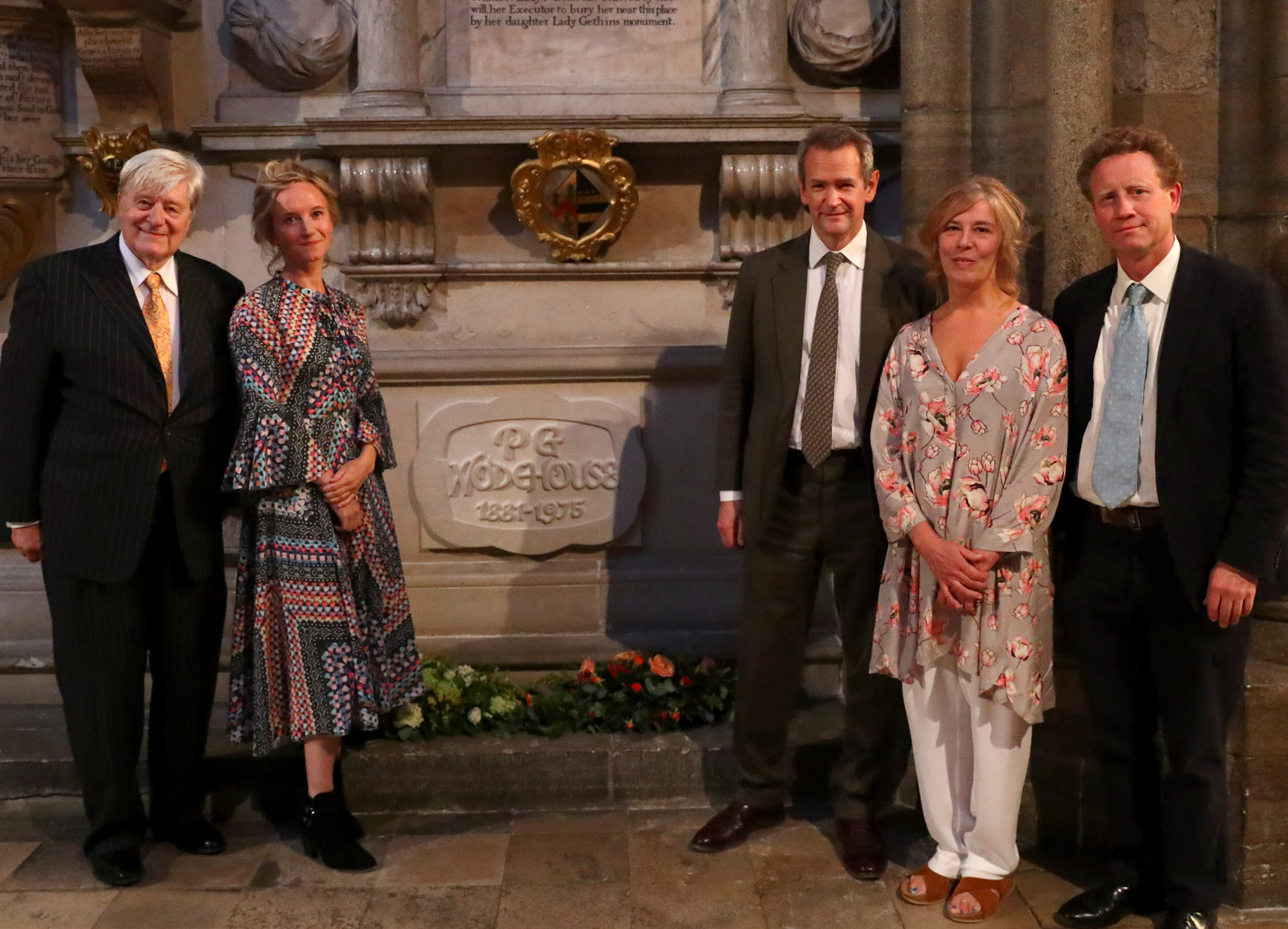
By: LekshmiSajeev
by AMIT ROY
WHY does PG Wodehouse, with his stories about Bertie Wooster and his valet Jeeves, have such a devoted following among Indians?
This was one of the questions addressed after the dedication of a memorial stone in Westminster Abbey last Friday (20) to the author who has been hailed in the Oxford Dictionary of National Biography as “the greatest of all English humourists”.
The wording on the memorial is simple: “PG Wodehouse 1881-1975”. Etched almost imperceptibly around the four sides are his accomplishments: Novelist, Humourist, Lyricist and Playwright.
The dignified service was led by the Dean of Westminster, The Very Rev Dr John Hall, who sanctioned the memorial to the author after a request from the 1,000 members of the Wodehouse Society in the UK.
To his fans, Wodehouse has always been known by his nickname, “Plum”. He was educated at Dulwich College in south London, where recently the most popular surname among the nearly 1,500 pupils was Patel.
The school library is named after Wodehouse.
“We are very aware of the enormous and fond following Plum enjoys in India,” remarked Jo Jacobius, a PG Wodehouse Society committee member.
His appeal to Indians was explained by Paul Kent, whose recently released book, Pelham Grenville Wodehouse, This Is Jolly Old Fame (TSB Publishing), the first of three volumes, “offers the reader a guided tour of Wodehouse’s imagination”.
Kent, who said he subscribes to “a lot of Facebook fan sites in India”, explained: “Plum’s Indian readers really enjoy the way he used the English language. They love the way he plays with it, the way he invents things, the energy behind the language. I think that chimes with the very inventive and colourful way people who aren’t English use English. They delight in all the aspects of the language, which people who use English as their first language take for granted.
“It’s just fantastic to see a completely different perspective on his achievements from a group of people who obviously love English as much as people in his home country. In England maybe we take Wodehouse for granted a bit too much – we’ve got a lot to learn from Plum’s Indian readers in appreciating what a great writer he was.”
He went on: “A lot of the activity that takes place in India surrounding Wodehouse takes place on the Internet …one of the most popular ways of liked-minded people getting in touch with one another.
“These groups contain lots of fiercely and staunchly loyal Wodehouse fans – the same names keep cropping up over and over and over again and they have so much delight and joy in sharing their knowledge of Wodehouse with one another. It’s great to see.”
Westminster Abbey is normally a sombre place, but there was laughter in the South Quire Aisle, where members of the PG Wodehouse Society were assembled close to the memorial stone, as familiar extracts were read from the Bertie Wooster and Jeeves canon.
In The Code of the Woosters (1938), Bertie says: “There are moments, Jeeves, when one asks oneself, ‘Do trousers matter?’”
“The mood will pass, sir,” he is reassured by Jeeves.
The lines were read by the TV personality and president of the PG Wodehouse Society, Alexander Armstrong.
There was an extract from The Mating Season (1949), read by Lucy Tregear, while Martin Jarvis brought to life Lord Emsworth and the Girl Friend, in Blandings Castle (1933).
And at the reception afterwards, the actor Neil Pearson read what is regarded by Indian fans as “one of literature’s most memorable speeches ever” – Gussie Fink-Nottle’s inebriated address on prize-giving day at Market Snodsbury Grammar School in Right Ho, Jeeves (1934).
Wodehouse’s step-grandson, Sir Edward Cazalet, spoke afterwards of the man he knew, while his son and daughter, Hal and Lara, sang some of Plum’s lyrics.
With a memorial stone, formally “received in safe custody” by the dean from the Duke of Kent, patron of the PG Wodehouse Society, Plum has returned symbolically to the bosom of England. Someone said it was “appropriate” that his memorial, in pale Portland stone, is just above the contrasting black marble of the playwright Noël Coward and the actress Dame Sybil Thorndyke.
In his presidential address, Alexander reminded the congregation that Plum “wrote more than 70 novels – all of which are still in print – and about 19 volumes of short stories as well as the lyrics for over 200 songs. His books have been translated into 33 different languages….He wrote more than 20 plays.
“The dedication today of a memorial stone in this historic Abbey is not only a tribute to Wodehouse’s longevity and status as a writer of national importance, but also an acknowledgement of the enduring quality of his work and the affection in which he is still – and I think always will be – held.”
The memorial was carved by letter cutter Annet Stirling after it had been designed by Stephen Raw, a Wodehouse fan who explained why he was wearing an Indian raw silk orange achkan. It had been tailored in Delhi for his daughter’s wedding, he said, introducing his wife, his daughter and new son-in-law, Shalin Punn, son of Lord Swraj Paul’s daughter, Anjli Paul. Thus distinctively attired, he sat for photographs by the memorial.
“Jeeves, isn’t it splendid, we are being multicultural!” Bertie would have enthused, downing a pick-me-up. “I think I will ask Lord Paul to get me a similar outfit, only a bit more glittery.”
Jeeves, deliberately laying out the blazer, grey flannel trousers and the OE tie, would have been noncommittal: “Indeed, sir.”
